What Animals Eat Pears?
Hi there, readers! Today, we’re gonna dive into a question that I’m sure has been on all of your minds: What animals eat pears? I mean, who doesn’t love a nice juicy pear, right? But can our furry and feathered friends indulge in this delicious fruit as well? Let’s find out!
Which animals can eat pears?
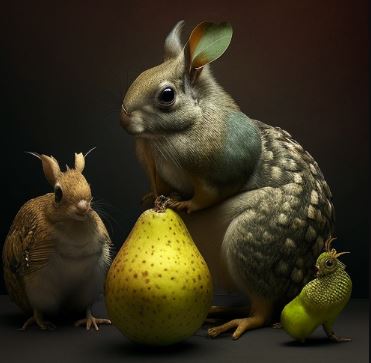
First off, let’s answer the main question. Yes, animals can indeed eat pears. In fact, many different types of animals can chow down on this sweet treat. Some examples include:
- Birds, like robins and blue jays, who love to snack on ripe pears.
- Squirrels, who have been known to steal pears from people’s trees and gardens.
- Deer, who enjoy munching on the fallen fruit in orchards and fields.
- Even some types of livestock, like pigs and cows, can enjoy a pear as a tasty snack.
So why do these animals eat pears? Well, pears are a great source of vitamins and nutrients that can benefit their health. Plus, let’s be honest, they’re just really tasty!
Related questions
Now that we’ve answered the main question, let’s dive into some related questions that you may have.
Are pears safe for animals to eat?
For the most part, pears are safe for animals to consume. However, there are a few things to keep in mind. First, make sure the pear is ripe and not too hard, as this can be difficult for some animals to eat. Second, avoid feeding your pets or livestock the seeds or core of the pear, as these can be a choking hazard or even toxic in some cases. And finally, always make sure to wash the pear thoroughly before feeding it to your animal, as pesticides and other chemicals can be harmful.
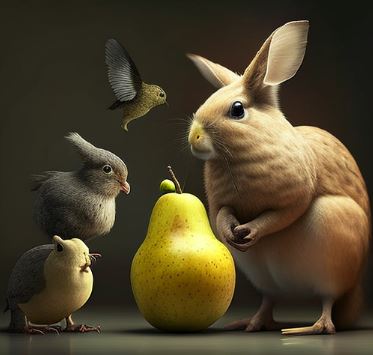
Can dogs eat pears?
Yes, dogs can eat pears too! In fact, pears can be a great addition to your pup’s diet, as they are high in fiber and low in fat. However, as with any new food, it’s important to introduce pears slowly and in small amounts to make sure your dog doesn’t have any adverse reactions. And, of course, always make sure to remove the seeds and core before feeding.
Do wild animals eat pears?
Yes, wild animals can and do eat pears! Some examples include raccoons, possums, and even bears. However, it’s important to note that feeding wild animals can be dangerous and should generally be avoided. If you have a pear tree in your yard and want to discourage wild animals from eating the fruit, try using fencing or other barriers to protect the tree.
Many wild animals, such as bears, raccoons, squirrels, chipmunks and deer, enjoy eating pears. In fact, some people plant fruit trees in their yards specifically to attract wildlife. However, it’s important to keep in mind that feeding wild animals can be dangerous and should be done with caution.
One animal that you might not expect to eat pears is the elephant. Elephants love to eat fruit, and pears are no exception. Pears are a great source of hydration for elephants, as they contain a lot of water.
Nutritional benefits of pears for animals
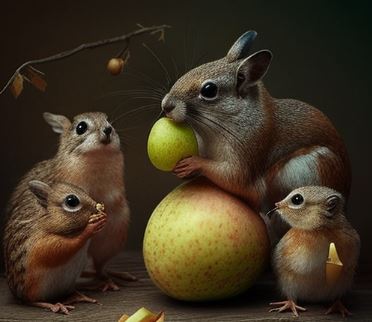
So we know that animals can eat pears, but are they actually good for them? The answer is yes! Pears are a great source of vitamins and nutrients, including:
- Vitamin C, which can boost the immune system and promote healthy skin and hair.
- Fiber, which aids in digestion and can help prevent constipation.
- Potassium, which can help regulate blood pressure and prevent muscle cramps.
- Copper, which can aid in the absorption of iron and promote healthy bones.
How to feed pears to animals safely
While pears offer many health benefits for animals, it’s important to feed them in moderation and take certain precautions to ensure their safety. Here are some tips for feeding pears to your furry friends:
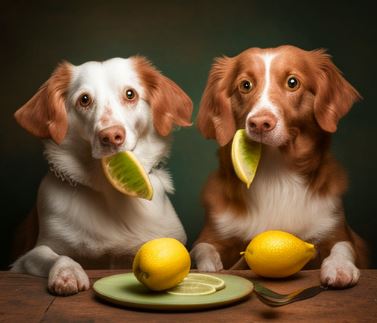
- Wash the pear thoroughly before feeding it to your animal. This will remove any dirt, pesticides, or chemicals that may be present on the surface of the fruit.
- Cut the pear into small pieces or slices. This will make it easier for your animal to chew and digest.
- Remove the seeds and core of the pear before feeding it to your animal. The seeds contain trace amounts of cyanide, which can be toxic to animals in large quantities.
- Introduce pears gradually into your animal’s diet. This will allow their digestive system to adjust to the new food and prevent any potential stomach upset.
- Monitor your animal’s reaction to pears. If you notice any signs of gastrointestinal distress, such as vomiting or diarrhea, stop feeding them pears immediately and consult with your veterinarian.
Other fruits that animals can eat
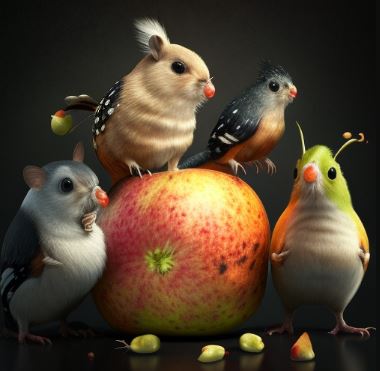
While pears are a great snack option for animals, they are not the only fruit that animals can eat. Here are some other fruits that animals can enjoy:
- Apples – like pears, apples are high in fiber and antioxidants, making them a great option for promoting digestive health and preventing disease.
- Bananas – bananas are high in potassium and vitamins, which can help maintain healthy muscles and promote overall wellbeing.
- Blueberries – blueberries are packed with antioxidants, which can help prevent cell damage and reduce the risk of certain diseases.
- Watermelon – watermelon is high in water content, which can help keep animals hydrated during hot weather.
FAQ
Q: Can cats eat pears?
A: Yes, cats can eat pears in moderation. However, it’s important to remove the seeds and core of the pear before feeding it to your cat.
Q: Are pears safe for rabbits to eat?
A: Yes, pears are safe for rabbits to eat in moderation. However, it’s important to remove the seeds and core of the pear before feeding it to your rabbit.
Q: Can horses eat pears?
A: Yes, horses can eat pears in moderation. However, it’s important to remove the seeds and core of the pear before feeding it to your horse.
What are some creative ways to serve pears to animals? There are many creative ways to serve pears to animals. For example, you can slice the pears and mix them in with your pet’s regular food, or you can puree the pears and freeze them in ice cube trays to make a refreshing summer treat. You can also mix pears with other fruits and vegetables to create a tasty and nutritious salad for your pet.
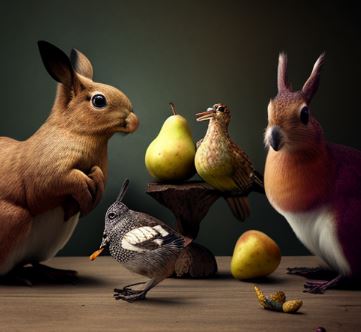
Can pears help with an animal’s digestion? Yes, pears can help with an animal’s digestion. Pears are a good source of fiber, which can help regulate digestion and prevent constipation. Fiber can also help regulate blood sugar levels, which is important for animals with diabetes. Rabbits and guinea pigs are two examples of animals that may benefit from eating pears to aid in digestion.
Are there any animals that should not eat pears? While most animals can safely consume pears, there are a few exceptions. Animals with diabetes should be careful when eating pears due to their sugar content. In addition, animals that are overweight or have a history of digestive issues should also be monitored when consuming pears. Always consult with your veterinarian before adding any new food to your pet’s diet.
Can feeding pears to animals be harmful to the environment? Feeding pears to animals can potentially have negative environmental impacts. Pesticides used in the production of pears can be harmful to the environment, and the waste produced by animals eating pears can contribute to pollution. To minimize the environmental impact of feeding pears to animals, choose organic pears when possible, and consider composting the waste produced by your pets. It is also important to not overfeed animals, as excess food can contribute to waste and pollution.
Conclusion
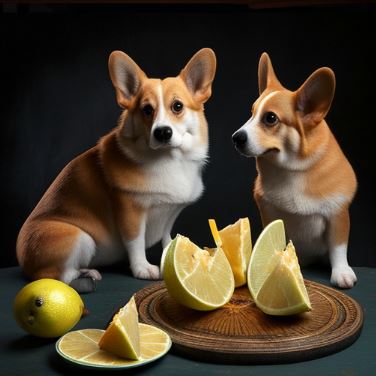
In conclusion, pears are a delicious and nutritious treat for animals (and you), but they should be fed in moderation and with caution. By following the tips outlined in this article, you can safely introduce pears into your animal’s diet and provide them with a tasty and healthy snack option.
Remember to always monitor your animal’s reaction to new foods and consult with your veterinarian if you have any concerns about their health or nutrition.
We hope you found this article helpful and informative. If you have any experiences or tips to share about feeding pears to animals, feel free to leave a comment below. Thanks for reading!
Pingback: The Best Treats for Husky Puppies - Small Animal Planet